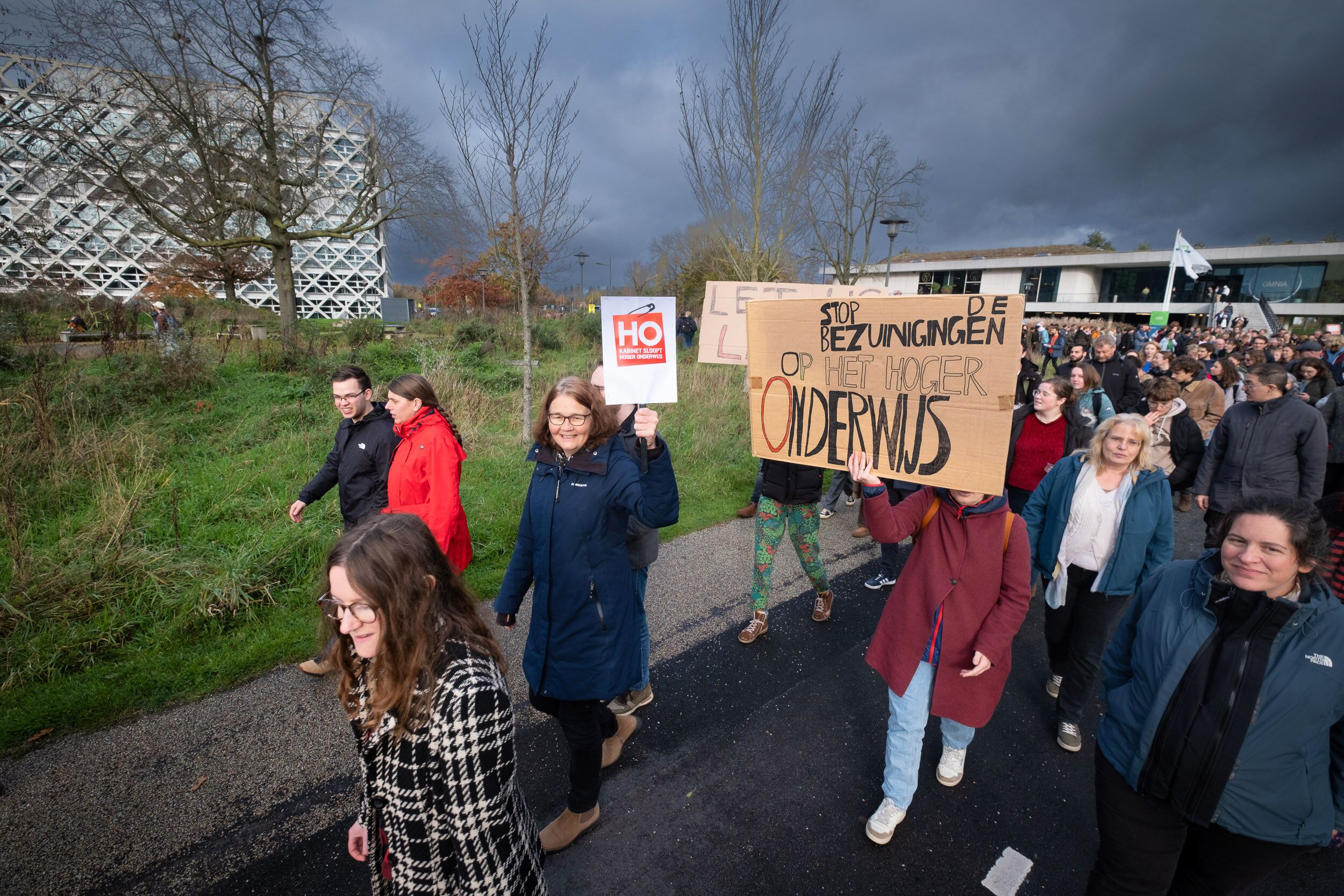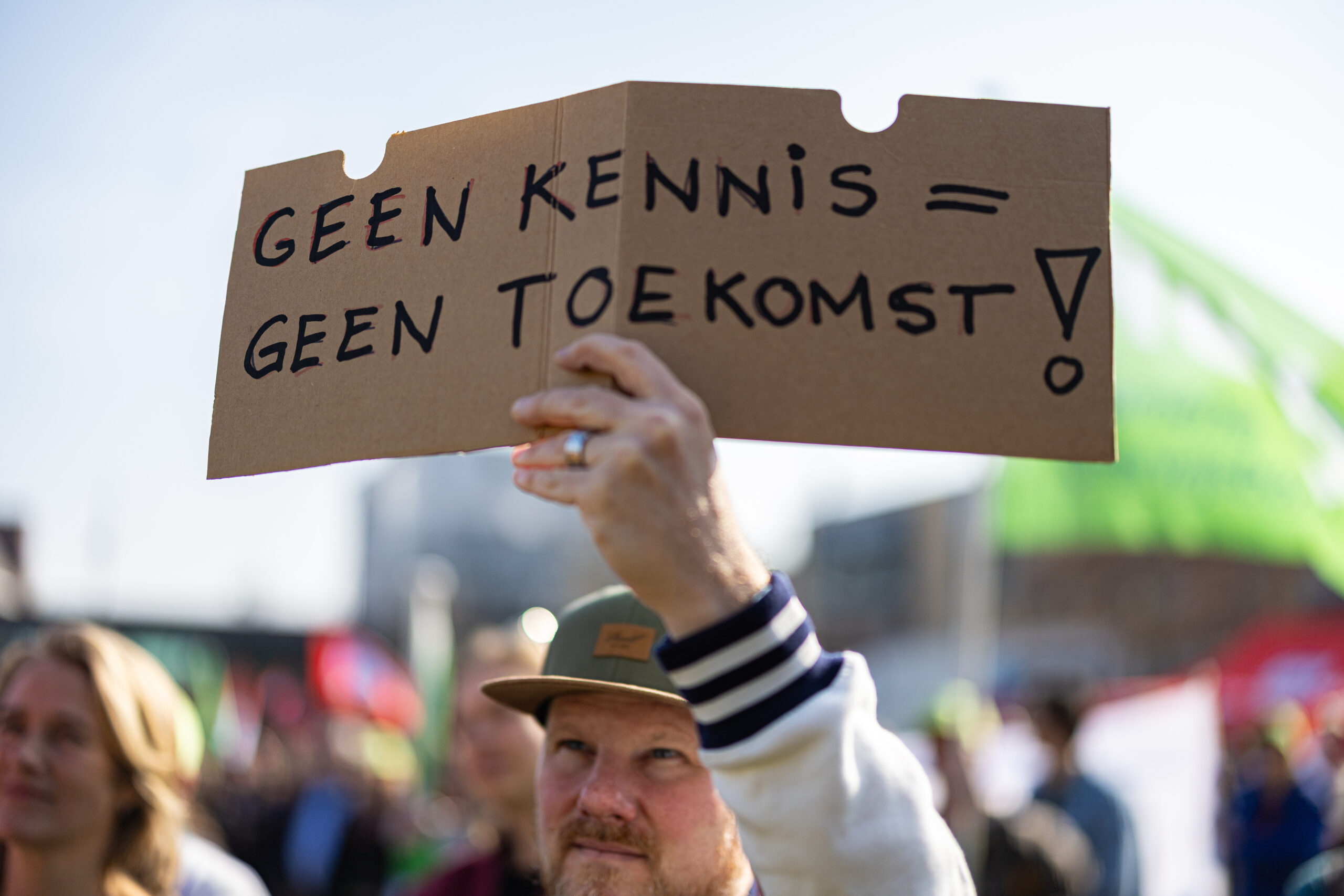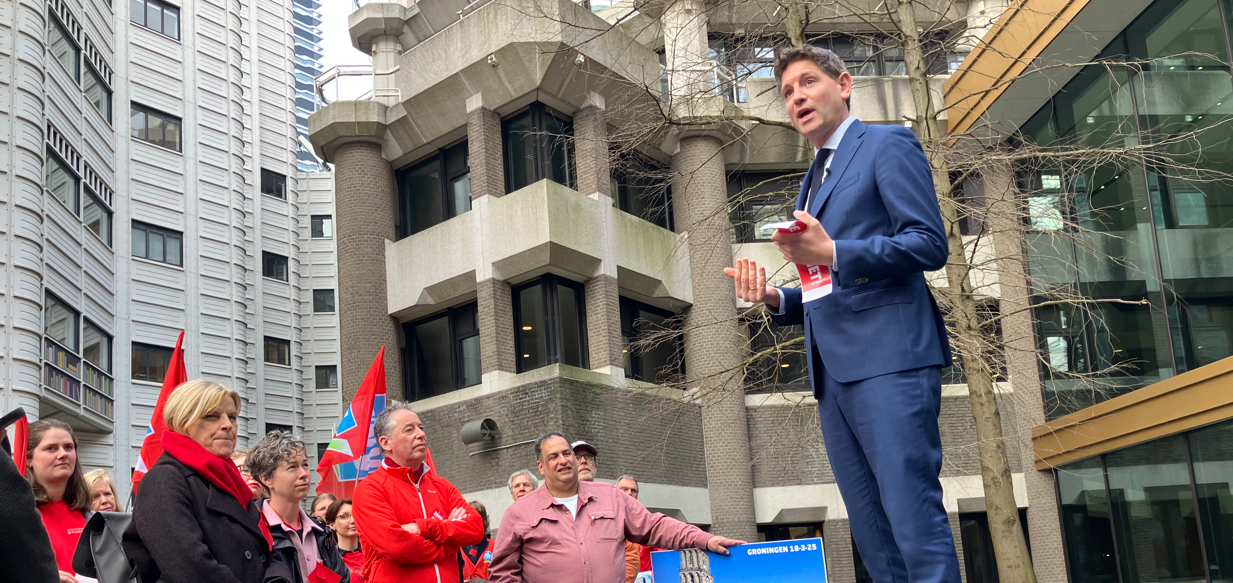Despite the opposition’s demand to cancel 1.3 billion euros in budget cuts in research and education, the coalition parties stick to their guns. The coalition is willing to agree to reduce the budget by 363 million euros.
The coalition made up of PVV, VVD, NSC and BBB, has been negotiating with a united opposition made up of D66, CDA, JA21, ChristenUnie and SGP) over the planned 2 billion euros in budget cuts for education and research. De Volkskrant and NRC report the negotiations are barely advancing.
The opposition demands that 1.3 billion euros in budget cuts be taken off the table. The cabinet is willing to agree to reduce the cuts by 363 million, but this offer is dismissed.
Threat
The five opposition parties threaten to vote against the ministry’s budget in the Senate, where they hold a majority. If they do so, the previous budget, without the cuts, will remain intact.
RTL Nieuws claims to be in possession of an internal document containing government officials’ answers to a wide range of questions on the budget. In the document, they point out that the slow student fine will affect mostly vulnerable students and creating exceptions would be very difficult. Moreover, the officials questioned proposed austerity measures such as ‘fewer international students’, which are far from certain. These issues were public knowledge.
Vote
The House of Representatives is to vote on all budgets this Thursday. That includes the Ministry of Education, Culture and Science’s (Dutch acronym: OCW) budget, which includes budget cuts on tertiary education and research, as well as cutbacks on other levels of education and community service.
The cabinet may make a promise along the lines of the sales tax on culture and books, which still features in the budget. The minister of Finance has promised to find an alternative. However, the chances of the opposition accepting a similar solution in the case are slim.
Blame
Meanwhile, there is also the issue of responsibility. Who is to blame for the situation that has emerged? Some blame Minister Eppo Bruins for failing to discuss the matter with the opposition sooner. He claims his hands are tied due to the budget cuts in the coalition agreement. However, the coalition parties follow suit. They reiterate that this is what was agreed, ignoring the political problem, and return the ball to the minister.

 Protest against budget cuts in education on Wageningen Campus. Photo Guy Ackermans.
Protest against budget cuts in education on Wageningen Campus. Photo Guy Ackermans. 

